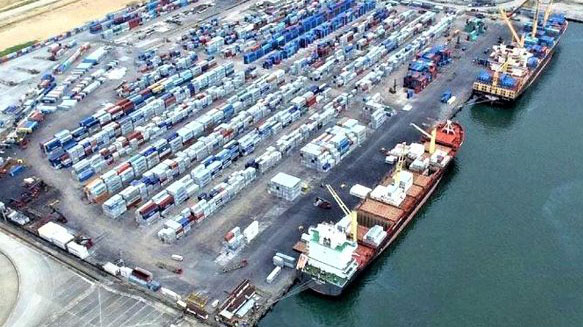
The unemployment challenge has been the focus of policy discussions recently. Just to give a brief background of the problem, the unemployment rate has risen to 18.8 percent as at the third quarter of 2017, the last time we measured it. The rate is high, which is a problem on its own, but the really worrying thing is that it has been increasing almost non-stop for the last decade. In almost every quarter, the net number of jobs created has been lower than the number of people entering the labour market, hence the increase in unemployment. There are further issues with underemployment and youth unemployment too.
One of the strategies to deal with this rising unemployment has been a renewed focus on agriculture. The focus has been driven to a large extent by research which shows that in Nigeria, agriculture and trade have a high employment multiplier. The research suggests that for every one extra person employed in agriculture, 7.8 additional jobs are created in other sectors. This has been interpreted to mean that agriculture should be the focus for job creation if the unemployment problem is to be tackled.
As you no doubt have guessed, I am sceptical that agriculture can be the job creating behemoth it is made out to be for a couple of reasons. The first is the global trend in agriculture employment as a share of total employment. In every growing country, the fraction of the people who work in agriculture is actually falling. There are no countries that are growing that are actually increasing the share of the population working in agriculture.
The second reason is that most of the factors which go hand in hand with improving agriculture tend to imply less people working with more land. The use of tractors and other machinery for instance is typically associated with fewer farmers working with more land. Without including technology, increasing farm incomes are also associated with more access to land, which again implies less farmers given the same amount of land. Even if you throw in the role of agro-allied industries as an add-on to agriculture, they are also biased towards larger farms that can provide the standardized produce required. In short, you would struggle to find many factors for agriculture growth that are associated with more people working in the sector, not less.
If you scratch below the surface of agriculture employment, then the story there becomes clear. Some of the states with the lowest unemployment rates are states where a large fraction of the economy and employment is dominated by agriculture. Katsina had an unemployment rate of about 3 percent for instance, with Adamawa, Taraba, and Zamfara not too far behind. These states have very low unemployment rates. Coincidentally, these states also have a large fraction of the population employed in agriculture. Unsurprisingly, these states also all have a very high incidence of poverty. According to the Oxford University Poverty and Human Development Initiative (OPHI), these states with supposedly low unemployment rates had very high poverty rates. Zamfara for instance had a poverty rate of above 92 percent, while Katsina had a poverty rate above 82 percent. In essence, a lot of the employed in these states are in agriculture but are poor. This is perhaps not surprising given the average farm size of 0.53 hectares.
The data suggests that, rather than being the bastion of job creation, agriculture for most farmers is actually a form of social security, generating enough income to keep heads above water and keeping them technically employed but also still in poverty. The question then is if we should be trying to get more people into this kind of employment, or if that is just a strategy for entrenching poverty.
To be clear I am not advocating for the abandonment of agriculture policy. Promoting things like increased yields through better seed quality and farming practices and improving off farm bottlenecks like waste and infrastructure can make a real impact in the lives of those employed in agriculture. Focusing on improving the lives of the poor should be front and centre of any economic policy. I am just not sure if agriculture can or should be the long-term employment generator it is made out to be. Perhaps we need to put on our thinking caps and search for alternatives.
Nonso Obikili is an economist currently roaming somewhere between Nigeria and South Africa. The opinions expressed in this article are the author’s and do not reflect the views of his employers.
[ad unit=2]






